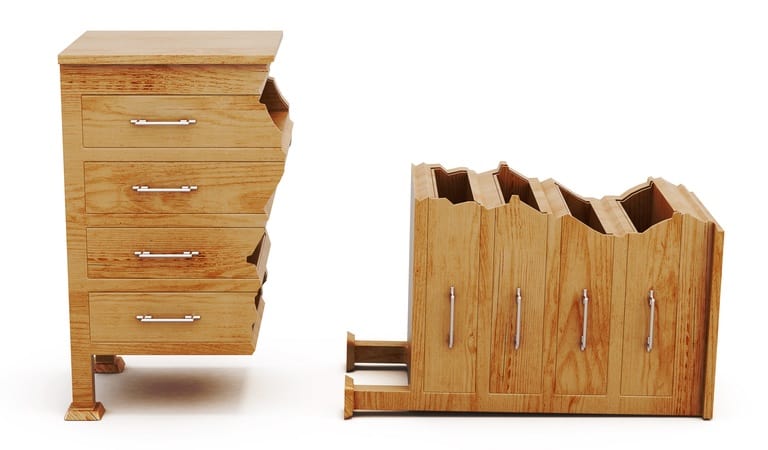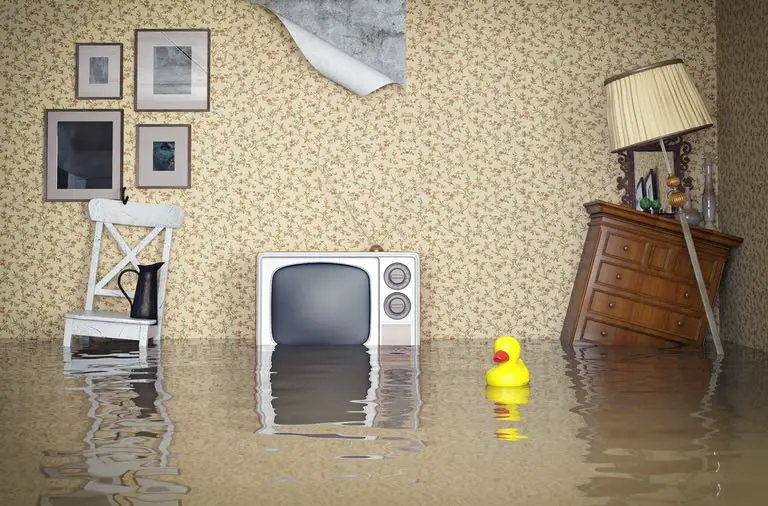Owning a buy-to-let rental property comes with a lot of responsibilities. Not only do you have to keep up with the maintenance and repairs, but you also have to make sure you are compliant with the current regulations and the terms and conditions of your mortgage.
Landlord insurance is part of that. But what is it, and what does it cover?
Landlord insurance covers risks related to a buy-to-let property and rental activity. Policies start with buildings and property owners’ liability insurance. Landlords can add other types of cover depending on their needs, including rent guarantee, accidental damage, emergency cover and more.
No one knows what the future holds, which can make planning for potential risks a difficult and expensive task. You will want to make sure you are covered, but at the same time, you do not want to pay for more cover than you need.
Here, I’ll provide an overview of the bare-bones policies you should have in place, with a brief overview of the optional extras that you might want to consider, depending on your needs.
I would also like to add that ‘Landlord Insurance’ is a very broad term. When somebody says ‘You will need landlord insurance!’ that doesn’t mean that you need to fork out for all the bells and whistles. It simply means that you will require Buildings Insurance and Property Owners Liability Insurance.
Contents
What Does Landlord Insurance Cover?
The most common types of landlord insurance will cover several types of risks. These risks include: natural disasters, liability, accidents and damage.
Natural disasters can include floods, hurricanes, earthquakes and more.
Liability can refer to any legal action that is taken against your property or rental business (by tenants, suppliers or others).
Accidents can include slips, falls, fires, and more.
Damage can cover a number of incidents like water spilling within the property (causing mould and mildew) vandalism or anything else that might cause serious damage.
Important note: All insurance policies contain warranties and conditions precedent which are very strict requirements that insurers attach to a policy. As such, failure to continually meet these requirements throughout the policy period could leave a policyholder without any insurance protection, giving underwriters the right to decline a claim, suspend cover or even void the policy in its entirety.
It is therefore vital that you read and understand the warranties and conditions applicable to your insurance policy, which are contained in full within the policy document issued by your insurers.

Do I Need Landlord Insurance?
If you have a mortgage on your buy-to-let property, you will require buildings insurance and property owners’ liability insurance as a minimum. Without them you will be in breach of your mortgage terms and conditions.
If you do not have a mortgage on the property, then you will have a choice.
After all, your tenants are responsible for their own belongings and damage, right?
While it is true that your tenants are responsible for their own property and any damage they cause, there are still many reasons why you should consider getting landlord insurance.
For one thing, landlord insurance can help protect you from liability if your tenant causes damage to the property or injures themselves or someone else while on the premises.
It can also help cover the cost of repairs if the property is damaged by fire, theft, or vandalism. In addition, landlord insurance can give you peace of mind knowing that your investment is protected in case of an unforeseen event.
So, while you may not be legally required to get landlord insurance, it is still something you should seriously consider.
What Types Of Insurance Do Landlords Need?
There are two types of insurance that landlords need:
Buildings Insurance
Landlord building insurance provides protection against damage to the physical structure of the property, including the roof, walls, windows and doors. It also covers any damage to your building caused by fire, wind, flooding, other natural disasters, and vandalism.
If you own a flat or an apartment, the buildings insurance will likely be covered by the freeholder and funded by the annual service charge that you pay.
It’s important to note that your buy-to-let property cannot be covered by a standard home insurance policy. You must ensure that you purchase a dedicated building insurance policy for homes that are occupied by tenants.
If you have a mortgage on your buy-to-let property, the mortgage lender will tell you how much coverage is required on your buildings insurance policy.
Buildings insurance covers the cost of repairing or rebuilding the property if it is damaged by fire, theft, vandalism, or another covered event.
Property Owners Liability Insurance
Property Owners Liability Insurance protects the policyholder from being held financially responsible for any damages or injuries that occur on their property, up to the limit of the policy.
This type of insurance protects the landlord in the event that a tenant or someone else is injured within the property.
For example, if the tenant or somebody else falls down the stairs and suffers an injury, the property owner may be held liable. This type of insurance can help protect the landlord from any financial damages that may occur as a result.
Essentially, property owners liability insurance will protect the landlord from legal action and will cover compensation claims and legal expenses.
What Other Type Of Insurance Can Landlords Purchase?
There are many different types of landlord insurance policies available to choose from.
Deciding on the right policy for you will depend on a number of factors, including the type of property you own, the location of your property, the number and type of tenants you have, and your own personal preferences.
Here is a list of different types of landlord insurance which will be available to you, and a brief description about what they provide:
Contents Cover Insurance
Contents insurance for landlords is an option to help you safeguard your entire investment if you have supplied equipment within the property.
The policy will cover items such as furniture and appliances. This type of insurance can help protect you from financial loss if these items are damaged or stolen.
Contents insurance for landlords usually has a few different coverage options, so it’s important to understand what each option covers.
For example, some policies may cover the replacement cost of lost or damaged items, while others may only cover the cost of repairs. Be sure to read the policy carefully so you know what level of cover you have.

Knowing that your furniture and appliances are covered in the event of loss or malicious damage can help ease the worry of having unexpected expenses.
Although your items will be covered, your tenants items won’t be covered with this type of policy.
Loss Of Rent Insurance Cover
Landlord insurance can cover loss of rent, but it depends on the type of cover you’ve chosen and the reason for the loss of rent.
Some policies will cover lost rent if your tenants have to move out of your property due to a covered disaster, like a fire or flood. Be sure to check your policy details to see what type of coverage you have.
Loss of rent is not often a default landlord insurance cover so you will usually have to choose to add it when you buy your policy.
This type of policy will not cover the loss of rent if your tenants fail to pay though. For these circumstances, you should consider a rent guarantee insurance.
Standard cover usually includes loss of rent with alternative accommodation insurance so that your tenants can be accommodated in temporary accommodation until your property is habitable again.
Rent Guarantee Insurance For Landlords
Rent Guarantee Insurance can help protect you from loss of rent and legal expenses associated with tenant disputes.
Insurance can cover the amount of unpaid rent prior to vacant possession being obtained, as well as the costs of legal action and court proceedings.
Whether the tenant is unable to pay, or simply does not pay, you will be covered.
Some policies provide cover of up to 24 months of unpaid rent prior to vacant possession, with a maximum total of £100,000.
Rent guarantee insurance can be an important safety net for some landlords.
This type of policy can help give you peace of mind in knowing that you will be covered in the event that your tenants do not pay their rent, and that you will still be able to pay your running costs for the property.
There are a few things to keep in mind when considering this type of insurance though, including the cost and whether it’s right for your property.
To be eligible for this insurance, your tenant typically must have passed a referencing process that includes an affordability test, proof of earnings, proof of ID and credit referencing.
The credit score should be clear of CCJs in the past 3 years, with no previous bankruptcies, and demonstrate the ability to meet rent commitments.
If you are considering rent guarantee insurance, it is best to contact an insurer and ask how you would qualify before signing a tenancy agreement and allowing the tenant to move in.
This will ensure that you will be able to recoup the rental income if you need to make a claim.
Landlords Emergency Assistance Cover
There is never a good time for a leak, electrical circuit failure or boiler breakdown. So paying for emergency assistance cover can give landlords complete peace of mind whilst avoiding any unexpected bills. Some of which can run into hundreds or even thousands of pounds.
This type of cover can also save you time in finding a trade to deal with the problem, as your insurance will take control and provide assistance either the same day or next day.
Landlords also have the option to tailor the cover they would like, depending on their needs, including:
- Boiler breakdown and controls
- Central Heating
- Plumbing
- Electrics
- Drainage
- Roofing
- Home Security
- Lost keys
- Pest Control
- Handyman
Landlords should deal with faults and repairs immediately. For those who do not have the time, or experience, to deal with repairs quickly it is worth considering home emergency cover.
PlusHeat provides custom plans to fit your specific needs, so you won’t pay for anything that you do not need.

Landlords Insurance For Unoccupied Property
If you’re a landlord with an unoccupied property, you’ll need to make sure it’s properly protected. Landlords insurance for unoccupied property can help do just that.
This type of policy can help cover your property against a number of risks, including fire, theft, and vandalism. It can also help protect you against liability if someone is injured while on your property.
Unoccupied properties are much more susceptible to break-ins, petty crime and squatting, so this type of cover is particularly important.
You may also have some valuable equipment in the property which could be damaged or stolen – for example if you’re renovating your property and you leave materials and power tools overnight on site.
If your property is unoccupied for more than 30 days, your standard insurance policy may not cover it. That’s because most landlord policies have a vacancy clause that excludes coverage for unoccupied homes.
So, if you’re planning on leaving your rental property vacant for more than a month, you should inform your insurance company, and if necessary, buy a separate landlords insurance policy specifically for unoccupied properties.
Tips To Help You Get The Most Out Of Landlord Insurance
Here are some tips to help you get the most from landlord insurance:
1. Only pay for insurance cover you need. Take time to think carefully about the types of insurance you need for your buy-to-let property.
2. Make sure to read your policy carefully. Know what’s covered and what’s not.
3. Compare prices once you find a policy that meets your needs. There are many insurance providers, so it’s important to compare prices and find the right policy for you and your property.
4. Keep copies of important documents, such as your tenancy agreement and insurance policy. Keeping these documents in a safe place will help if something happens and you need to make a claim.
While you may not be legally required to get landlord insurance, it can provide financial protection in the event of an unforeseen incident. It can also cover legal expenses if something goes wrong and will give you peace of mind knowing that you’re protected.

